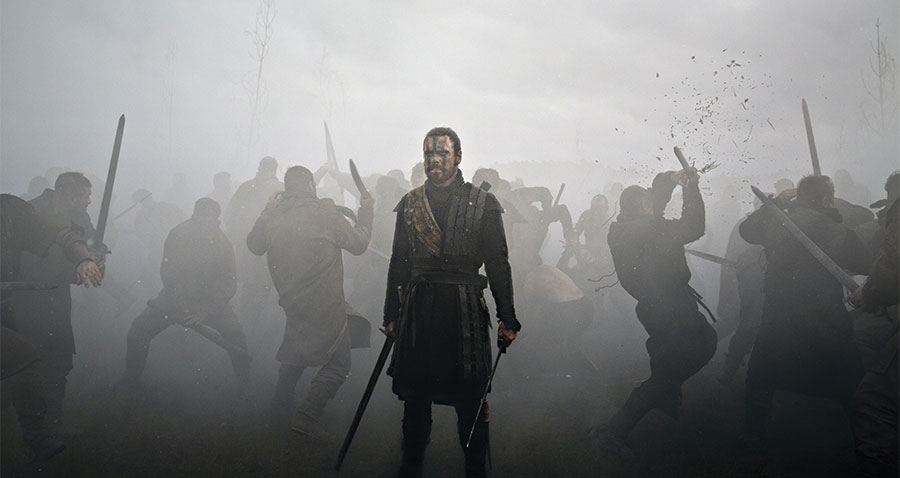Directed by Justin Kurzel
Screenplay adapted from Shakespeare’s tragedy by Jacob Kostoff, Todd Luiso, Michael Lesslie
Starring Michael Fassbender, Marion Cotillard, Paddy Considine, David Thewlis, Jack Reynor
France/UK 2015
Macbeth, Lord of Glamis, driven by the dark prophecy of some witches and encouraged by his wife, murders his king, Duncan, and becomes King of Scotland. For the ambitious spouses it will be the beginning of a descent into madness, in an impossible struggle against fate…
Competing in last year’s Cannes Film Festival, this adaptation of Shakespeare’s “cursed” tragedy (already subject of numerous celebrated adaptations including the ones from Kurosawa, Welles and Polanski) uses the unique interpretations of Michael Fassbender and Marion Cotillard in the role of the protagonist and his wife. In addition to the ferocity and madness expected from these characters, the two of them give the protagonists sudden flashes of tenderness exploring the emptiness that gives birth to the ruinous ambition of the couple.
Within this exploration of the birth of ambition and the desire to transcend human limits, lies the most original and interesting feature of the production. It is in many ways very historical (Macbeth’s world is a deep and primitive Middle Ages, combining relics of ancient Christianity and pagan customs, made of desolate landscapes and manor houses that are little more than huts) but still allows itself some significant departures from the original.
Fassbender’s Macbeth is a man marked by the violence of war, a veteran haunted by the ghosts of the dead; the most notorious one, Banquo, is but the tip of the iceberg of a wider malaise. He is tormented by the absence of a descendant, and by a future that stubbornly refuses to reveal itself except in riddles, rendering its determination even more essential.
His lady is a woman both ruthless as a knife and fragile in her desperate desire for and simultaneous rejection of motherhood. Her plunge into madness is caused, even more than by the vision of the defunct Duncan, by the horrific death of Lady Macduff and her children (which by poetic license takes place before her eyes at the stake).
These are the most interesting elements of a story which gets lost here and there in a smug repetition of its most poetic motifs; these proceed through references by other characters, at times depriving them of autonomy and interest.
And so King Duncan, victim of Macbeth, is left half sketched, like his heir Malcolm, a man without either guilt or qualities, and Macduff, the man of destiny who fulfills the ancient prophecy of bringing Birnham Wood to Dunsinane.
Macbeth is a tragedy of ambition, frustrated and yet accomplished; it is also about the questioning fate and free will, what it means to be human and for Macbeth to aspire to the throne, in his unquenchable thirst for power.
Kurzel’s film shows admirable craftmanship; it is poetic and suggestive, with great peaks of intensity but a sometimes exhausting pace. It leaves the viewer dissatisfied, though with a strong sense of pity for the protagonists and their terrible mistakes. There are some problematic elements, namely some scenes of unsettling violence.
This review first appeared on www.mercatornet.com.

